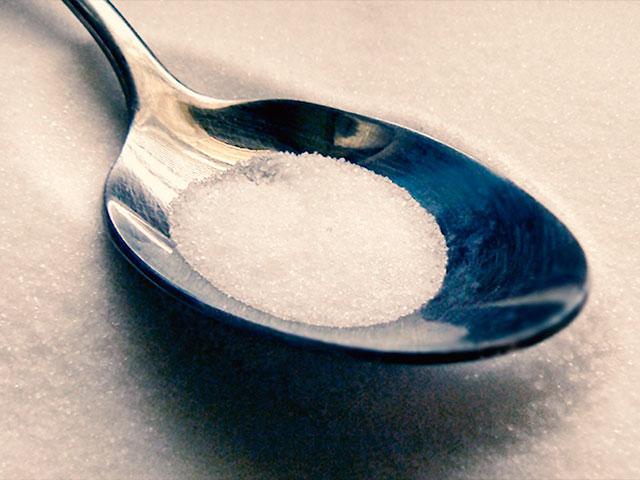A stunning new article in Monday's Journal of the American Medical Association Internal Medicine reveals sugar industry executives paid-off three Harvard scientists to publish a report minimizing the link between sugar and heart disease and instead blaming saturated fat.
The scandal took place in the 1960s, according to sugar industry and Harvard documents uncovered by the University of California, San Francisco investigators, including Cristin E. Kerns.
"They were able to derail the discussion about sugar for decades," UCSF professor Stanton Glantz, who wrote the article, said of the conspirators, who are now all deceased.
The bribe shaped American nutrition guidelines that still, in large part, are currently followed, possibly causing untold numbers of deaths.
"The revelations are important because the debate about the relative harms of sugar and saturated fat continues today," Dr. Glantz said.
The deception-for-money scheme initiated a ripple effect, influencing the dietary decisions of millions of Americans. In short, the sugar industry was able to dupe Americans into thinking saturated fat caused heart disease, when all along they knew a primary culprit, if not the primary culprit, was the product they sold.
The shocking disclosure is sparking outrage within the medical community.
"I think it's appalling," said Marion Nestle, a New York University professor of nutrition who wrote an editorial accompanying the JAMA article.
She said the documents provide "compelling evidence" that the sugar industry manufactured their own research "expressly to exonerate sugar as a major risk factor for coronary heart disease," then paid the Harvard scientists to tout its credibility.
"You just never see examples that are this blatant," she said.
Here's how it went down. Back in 1964, scientific studies started uncovering the link between sugar consumption and heart disease. Naturally, this alarmed sugar industry executives.
Documents show John Hickson, a top sugar industry executive, devised a plan to divert attention to saturated fat by using "our research and information and legislative programs."
The sugar industry paid for scientific studies that would show saturated fat caused heart disease, not sugar.
"Then we can publish the data and refute our detractor," Hickson wrote.
According to documents, Hickson paid three Harvard scientists a total of $6,500 ($49,000 today) to write a review of the sugar industry-funded research and have it published in the prestigious New England Journal of Medicine.
One of the scientists was Dr. Dredrick J. Stare, chairman of Harvard's nutrition department. Another was D. Mark Hegsted, who was later promoted to the U.S. Department of Agriculture's head of nutrition and in 1977 wrote the forerunner to the federal government's dietary guidelines.
Documents reveal Dr. Hegsted was on board with the plan, writing to the sugar executives, "We are well aware of your particular interest," adding "and will cover this as well as we can."
Dr. Hegsted and his co-conspirators also showed the sugar executives rough drafts of their evaluations of the slanted scientific research, which concluded with a condemnation of saturated fat as a contributor to heart disease, while brushing off the relationship between sugar and heart disease, according to documents.
Hickson was pleased.
"Let me assure you this is quite what we had in mind, and we look forward to its appearance in print," Mr. Hickson wrote.
The plan worked beautifully. After the review by the Harvard scientists was published, the medical community and the public at large pointed the finger squarely at saturated fat as the cause for heart disease, and there was little, if any correlation to sugar.
"It was a very smart thing the sugar industry did, because review papers, especially if you get them published in a very prominent journal, tend to shape the overall scientific discussion," Gantz said.
As a result, Americans entered a no-fat, low-fat craze that prompted an increase in sugar consumption. Obesity rates skyrocketed and heart disease remained the nation's No. 1 killer.
Where does that leave us today?
Fortunately, now the New England Journal of Medicine requires researchers to disclose funding sources. This rule was enacted in 1984. History might have been different if the researchers were required to disclose the money paid to them by the sugar industry.
As for the sugar industry's response to this, a statement by the Sugar Association said the industry "should have exercised greater transparency in all of its research activities," but stands by its claim that sugar does not have a unique role in heart disease."
Meanwhile, today's government dietary recommendations still include warnings about saturated fat consumption, although the American Heart Association and other agencies are starting to include warnings about sugar consumption as a risk for heart disease as well.










